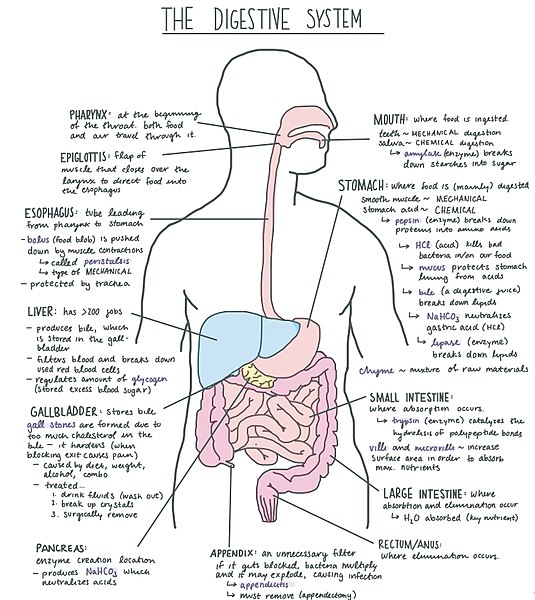Food is supposed to nourish and heal us, but sometimes food is the problem. In particular, many people suffer from food intolerances or allergies that can produce not only digestive issues like gas, bloating and loose stools, but also set the stage for more serious issues. Fortunately for many, help is usually quite easy in the form of digestive enzymes
What Exactly is Food Allergy or Food Intolerance
A food allergy or food intolerance occurs when there is an adverse reaction to the ingestion of a food. The distinction between the two terms is that in a classic food allergy, the immune system is involved to produce a true allergic reaction to present more severe symptoms, while food intolerance symptoms are generally less serious and often limited to digestive problems.
A classic food allergy occurs when an ingested food molecule interacts with the immune system that results in the release of histamine and other allergy producing compounds which produce swelling and inflammation.
In a food intolerance, the root cause is an inability to digest certain foods due to lack of a digestive enzyme. For example, approximately 65% of adults have a reduced ability to digest lactose after infancy. Lactose, a sugar in milk and milk products, is broken down by the enzyme lactase produced in the small intestine. If the lactose is not broken down by the enzyme lactase, it can produce a lot of gastrointestinal symptoms especially gas, bloating, cramping pain, and diarrhea. Taking supplemental lactase enzyme can help digest the lactase and allow people with lactose intolerance to eliminate these symptoms of food intolerance. Keep in mind, however, that many people who are lactose intolerant also have trouble breaking down milk proteins as well. Therefore, products that combine lactase with protein digesting enzymes (proteases) are usually a much better choice.
Using Digestive Enzyme Supplements in Food Intolerance
Not only can digestive enzyme supplementation make the dietary approaches to food intolerance work better, in many cases enzyme supplementation may be more useful than dietary changes. Many people with food intolerances benefit from a 14-day trial with a high potency digestive enzyme preparation. In the 14-day challenge simply take one or two capsules of the high potency enzyme formula before each meal for 14 days. Improving digestion via supplemental enzymes is often all that is necessary to eliminate a food intolerance.
Can digestive enzymes help with gluten intolerance?
Yes, products that combine protein-digesting enzymes known as proteases and the specific gluten-digesting enzyme dipeptidyl peptidase IV (DPP-IV) can help. Here is a quick refresher. Gluten is the main protein complex primarily found in grains which include wheat, barley, spelt and rye. Many people have an intolerance to gluten along with casein, a protein found in milk. When ingested in intolerant individuals these proteins can produce gastrointestinal discomfort, especially gas and bloating.
Although the popular solution for gluten and casein intolerance is following a gluten-free, casein free diet, as well as eliminating the offending proteins will reduce discomfort, there are often hidden sources of gluten or casein in foods that can still lead to discomfort.
Many gluten free products are available in natural foods stores and even in mainstream supermarkets. Beneficial grains for replacement of gluten sources include amaranth, quinoa, and a variety of rice, such as brown, red, black and wild rice. Casein is found in milk and dairy products. Obviously, when avoiding gluten and casein reading food labels carefully is required.
Supplemental digestive enzyme preparations can help people tolerate lower levels of gluten or casein intake especially during the initial phase of gluten and/or casein avoidance. Look for products that provide dipeptidyl peptidase IV (DPP-IV). This enzyme targets both gliadin and casein and is resistant to breakdown by other digestive enzymes. DPP-IV is thought to be one of the key enzymes responsible for the digestion of these proteins and is known to be found in lower amounts in the intestinal lining of individuals with gluten sensitivity and intolerance. In fact, there is an inverse relationship between the level of DPP-IV and intestinal damage in people with gluten sensitivity. In other words, the lower the DPP-IV the more significant the damage to the intestinal lining.
Preparations containing DPP-IV are often recommended to safeguard against any hidden sources of gluten.
Final Comments
Digestive complaints affect nearly one out of four people. In most cases, the symptoms reflect disturbed digestive function or food intolerance rather than an underlying disease. Functional gastrointestinal disorders include occasional indigestion or heartburn, functional dyspepsia, excessive flatulence, and the irritable bowel syndrome (IBS). Supporting digestion by using digestive enzyme preparations and other natural approaches is often the best route to elimination of these bothersome (and sometimes embarrassing) symptoms.

